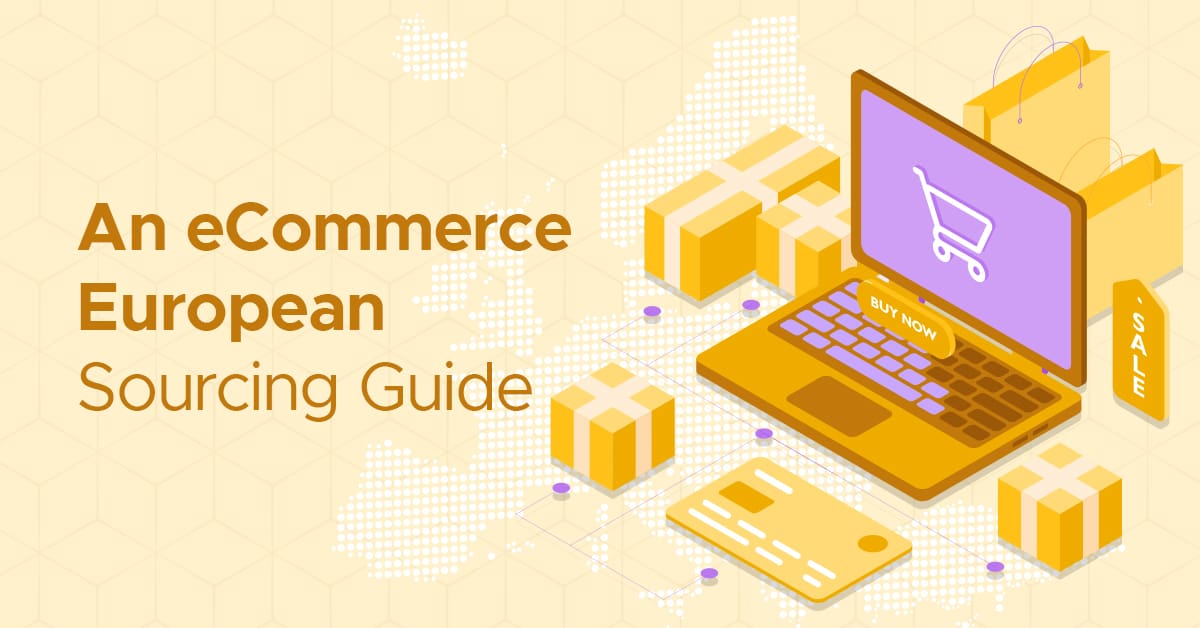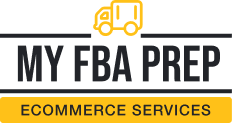
How to Source Your Products From Europe

This is a guest post from Oliver Allmoslechner. Oliver is the co-founder and CEO of Wonnda, a cutting-edge digital B2B marketplace that connects brands and B2B buyers with a comprehensive range of suppliers and manufacturers, predominantly in Europe. With years of experience in the tech and consumer goods industry, Oliver’s vision has been to make Wonnda a go-to platform for sourcing activities and supplier management. Launched in 2022, the company has flourished and already earned a reputation as “The Alibaba for Europe.” Australia-native Oliver has lived in Belgium, Portugal, the U.S. and, for the past few years, Berlin, where Wonnda is headquartered. He’s a hobby chef and passionate skier and loves enabling SMBs through the power of technology.
Diversifying your supply chain is a must for a business to thrive. European manufacturers offer quality products, reliability, and a touch of prestige that can elevate any brand to new heights. Whether you’re a U.S.-based, Canadian, or even a European eCommerce company, you can manage your product sourcing from European manufacturers effectively by taking the right steps. This guide will help you find the right supplier or manufacturer in Europe for your brand and walk you through the sourcing process.
Why you should source your products from Europe
One of the standout benefits of sourcing from European manufacturers, especially those within the European Union (EU), is the stringent regulatory environment that ensures ethical and sustainable practices. The factories and suppliers there are subject to regular audits that examine everything from environmental impact to labor conditions. The EU has strong laws against child labor, so you can feel confident your supply chain remains ethical.
Additionally, there’s a strong focus on providing fair wages and safe working conditions for employees. European manufacturers often lead the way in sustainable practices as well by incorporating eco-friendly materials and energy-efficient methods into their production processes. Other advantages include:
- Quality and craftsmanship: European manufacturers are renowned for their commitment to quality and craftsmanship. Whether it’s Italian leather, German engineering, or French fashion, products made in Europe often abide by high standards.
- Trade agreements: The U.S. has robust trade agreements with many European countries, which can make transactions smoother and potentially more cost-effective.
- Brand prestige: European products are often associated with prestige, which can be a powerful tool for brand differentiation. The “Made in Europe” label is not only proof of quality but also gives your brand additional recognition.
These features both offer peace of mind and can be a significant selling point for your customer base that values ethical and sustainable business practices.
What kind of products can be manufactured in Europe?
Europe has a wide variety of options for consumer goods that can add value and variety to your eCommerce store. For instance:
- High-end fashion and accessories from countries like Italy and France, which are renowned for their style and craftsmanship
- Beauty and skincare products from France, Eastern Europe, and Germany
- For those in the food and beverage industry, specialty foods like Italian olive oil or Belgian chocolates can set your offerings apart
- Home decor and furnishings from Scandinavian countries like Sweden and Denmark are increasingly popular for their minimalist, functional design
- In the health and wellness category, consider sourcing herbal teas from the UK or natural skincare products from Greece
Each of these categories presents a lucrative opportunity to sell premium, unique products that can set your eCommerce store apart from competitors.
How to find European manufacturers for your products
You have a few options to begin your search for a European manufacturer, including B2B marketplaces, industry trade shows, and B2B directories.
B2B marketplaces like Wonnda.com
Many B2B directories exist, but only a few platforms orchestrate the whole sourcing process. One example of a fully digital B2B sourcing marketplace is Wonnda, which was built for consumer brands that want to source high-quality products from verified manufacturers.
More than 90% of Wonnda’s manufacturing partners and suppliers are located in Europe, and brands from all around the world can start sourcing their products via one central platform that offers a fully digital end-to-end solution. The advantage of digital platforms like Wonnda is the integrated workflow tools, which facilitate everything from scheduling meetings to placing orders.
Industry trade shows
Europe hosts some of the world’s leading trade shows across various industries. Visiting these events can uncover insights into what suppliers have to offer and provide networking opportunities.
B2B directories
Websites such as Kompass or Yellow Pages can also be a useful resource for identifying potential manufacturing partners in Europe.
What to consider when sourcing your products from Europe
You need to iron out certain details prior to contracting with European suppliers. Drawing up an air-tight plan will smooth the path forward for your expansion. Flesh out the following elements before you start to source items from Europe.
Type of supplier
Determine what type of supplier you need, as there’s a big difference between buying wholesale or having customized products. Your options include:
- Wholesale supplier: These suppliers sell products in bulk quantities at discounted rates and are ideal for businesses that want to resell products as-is without customization. The primary advantage is the cost-effectiveness they offer due to bulk purchasing, lower minimum order quantities, and fast lead times.
- White label supplier: These suppliers provide generic products that you can brand and resell. It allows for quicker market entry with a lower up-front investment, as product development is already taken care of. It’s beneficial if you want to extend your product range without the complications of design and development.
- Private label manufacturer: This type is similar to white label but with the added benefit of customization. You can tailor existing products to better align with your brand identity. It’s a good fit for businesses looking to offer unique products without the headache of starting from scratch.
- Contract manufacturer: This type of supplier handles the entire manufacturing process, from raw materials to the finished product, based on your specifications. It’s ideal for businesses that have a strong vision for their product and require a high degree of customization and quality control.
Typically, contract manufacturers either produce a product, which was already developed by your brand, or help you develop one from scratch. Be aware, contract manufacturing combined with custom development is the most complex option, and you need to order higher quantities of products.
- Sourcing agency: Sourcing agencies do the legwork of finding suitable manufacturers for you. They usually have strong networks and can negotiate terms on your behalf. While you’ll have to pay a fee or commission, the advantage is their expertise in ensuring a fit between your needs and the manufacturers’ capabilities.
Certifications
A manufacturer must hold appropriate certifications. These documents are proof of their adherence to industry standards and regulations, which can vary from sector to sector. They also ensure the products you’re sourcing are compliant with both European and U.S. standards.
For instance, if you’re in the food industry, certifications like the ISO 22000 or HACCP are crucial. For textiles, you may want to look for OEKO-TEX or GOTS certifications. These qualifications not only assure quality but also protect you legally.
MOQ (minimum order quantity)
It’s imperative to understand a manufacturer’s minimum order quantity (MOQ) before diving into a partnership. MOQs dictate the lowest amount of a certain item that a supplier is willing to produce in a single order. This is particularly important for businesses just starting out and so may not have the volume to meet high minimums.
Negotiating MOQ can also impact pricing, as suppliers often offer discounts for bulk purchases. So, align MOQ requirements with your sales forecasts and budget considerations to create a mutually beneficial partnership.
Lead times
Learn the lead times involved in production and shipping, especially when sourcing internationally. This is the total time it takes from placing an order to receiving the finished product. Factors such as the item’s complexity, shipping distance, customs procedures, and seasonal variations can significantly impact lead times. Longer time frames may necessitate more substantial inventory holding, which in turn affects cash flow. Proper planning and ongoing communication with your supplier can mitigate these risks.
Payment terms
Securing favorable payment terms is pivotal in international sourcing, as they have a direct impact on your cash flow and profitability. Traditional options include letters of credit, which offer a layer of security to both parties, and bank transfers. Some suppliers may even accept digital payment solutions like PayPal for smaller transactions.
However, consider factors like currency exchange rates, transaction fees, and the reliability of the financial institutions involved. Always negotiate terms that offer a balance of risk and opportunity for both parties.
Making contact and requesting samples
Once you’ve identified a shortlist of manufacturers, the next step is to make contact. Initial conversations should be aimed at understanding whether the manufacturer can meet your specifications and timelines. Once comfortable, you can request samples.
Closing the deal and managing the relationship
Now that you’ve found your ideal match, you can move forward with your international partnership. Although drawing up the contract requires detailed attention from you and your legal team, you also need to stay on top of your manufacturer to ensure a fruitful relationship. Take time to oversee:
- Legalities: Consult with legal advisors to draft or review contracts. Make sure to cover all your bases, including intellectual property rights, payment terms, and contingency plans for any potential hiccups in the supply chain.
- Project management tools: Platforms that offer end-to-end solutions like Wonnda not only help you find a supplier but also manage the project post-connection. These platforms allow you to schedule meetings, invite team members, and facilitate transactions all in one place.
- Quality control: Implement a robust quality control process. This usually involves pre-shipment inspections and regular audits to ensure the product meets your specifications.
Wrapping up — Source products from Europe for reliable quality
Sourcing from Europe can seem daunting at first, but the benefits far outweigh the challenges. Lay out your needs, research and compare candidates, and craft air-tight contracts that protect your business for a lucrative partnership.
Expanding to Europe for sourcing can help your business enjoy reliable supply, and develop a more profitable and sustainable relationship with European manufacturers.


